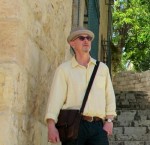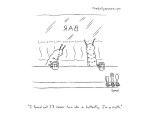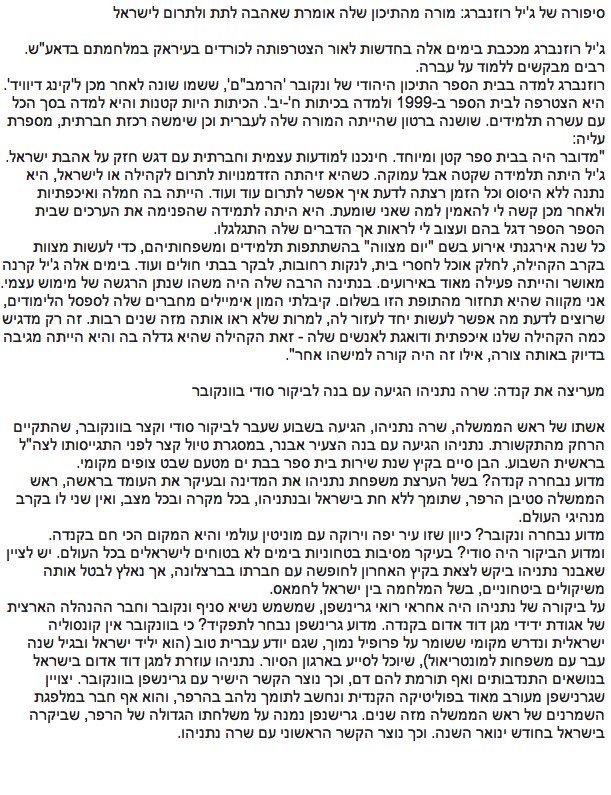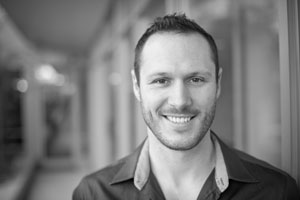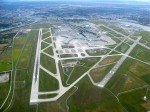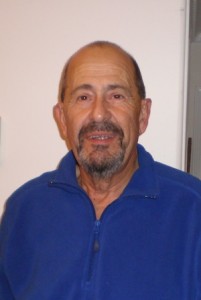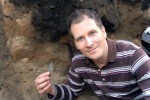The Jordan River is “the only river on planet earth that on its good days is a few feet wide, and people claim that it has a bank 40 miles wide.” (photo from Beivushtang via Wikimedia Commons)
Settlements or Jewish communities? West Bank or Judea and Samaria? East Jerusalem or eastern Jerusalem? Those are some of the language choices that journalists covering the Israeli-Palestinian conflict are faced with each day – and those choices should not be taken lightly, experts say.
“It’s the terminology that actually defines the conflict and defines what you think about the conflict,” said Ari Briggs, director of Regavim, an Israeli nongovernmental organization that works on legal land-use issues. “Whereas journalists’ job, I believe, is to present the news, as soon as you use certain terminology, you’re presenting an opinion and not the news anymore.”
“Accuracy requires precision; ideology employs euphemism,” said Eric Rozenman, Washington director of the Committee for Accuracy in Middle East Reporting in America (CAMERA).
At the conclusion of his essay, “Politics and the English Language,” George Orwell argues that writers have the power to “send some worn-out and useless phrase … into the dustbin, where it belongs.” Many Jewish leaders, organizations and analysts wish to do just that with the following terms, which are commonly used by the mainstream media in coverage of Israel.
West Bank: Dani Dayan believes the “funniest” term of all that is used in mainstream coverage of Israel is West Bank. Dayan is the chief foreign envoy of the Yesha Council, an umbrella organization representing the municipal councils of Jewish communities in an area that the Israeli government calls Judea and Samaria, in line with the region’s biblical roots. Yet, media most often use West Bank to describe the area in reference to the bank of the river situated on its eastern border.
“[The Jordan River] is the only river on planet earth that on its good days is a few feet wide, and people claim that it has a bank 40 miles wide [spanning across Judea and Samaria],” Dayan told this reporter. “There is no other example of such a thing in the geography of planet earth. That proves that West Bank is the politicized terminology, and not Judea and Samaria, as people claim.”
Member of Knesset Danny Danon (Likud) has said it’s “ridiculous” that West Bank – a geographic term that once described half of the Mandate of Palestine – has “taken on a political meaning that attempts to supersede thousands of years of Jewish tradition.”
“The correct name of the heartland of the Land of Israel is obviously Judea and Samaria,” he said.
Rozenman, the former editor of the Washington Jewish Week and B’nai B’rith Magazine, draws a distinction between the context of Palestinian and Jewish communities in the area. “If I’m referring to Palestinian Arab usage or demands, I use West Bank,” he said. “If I’m referring to Israeli usage or Jewish history and religion, etc., I use Judea and Samaria. Israeli prime ministers from 1967 on, if not before, used and [now] use Yehuda and Shomron, the Hebrew from which the Romans latinized Judea and Samaria.”
West Bank is fair to use, “so long as it’s noted that Jordan adopted that usage in the early 1950s to try to legitimate its illegal occupation, as the result of aggression, of what was commonly known as Judea and Samaria by British Mandatory authorities,” added Rozenman.
Dayan, meanwhile, prefers to call Palestinian communities in Judea and Samaria exactly that. “The area is Judea and Samaria and, in Judea and Samaria, there are indeed Palestinian population centres, and that’s perfectly OK,” he said. “We cannot neglect that fact, that yes, we [Jews] are living together with Palestinians. And, in Judea and Samaria, there is ample room for many Jews, for many Palestinians, and for peaceful coexistence between them if the will exists.”
Settlements: Judea and Samaria’s Jewish communities are often called settlements, a term that can depict modern-day residents of the area as primitive.
Settlements “once referred in a positive manner to all communities in the Land of Israel, but at some point was misappropriated as a negative term specifically against those Jews who settled in Judea and Samaria,” Danon said. “I prefer to use ‘Jewish communities in Judea and Samaria’ when discussing the brave modern-day Zionistic pioneers.”
Dayan said that “settlements” is not pejorative, but still inaccurate. “It’s a politically driven labeling in order to target those [Israeli] communities,” he said. “Most communities in Judea and Samaria are not different from any suburban or even urban community in Europe, in the United States, in Israel itself, or elsewhere.”
Read more at jns.org.


